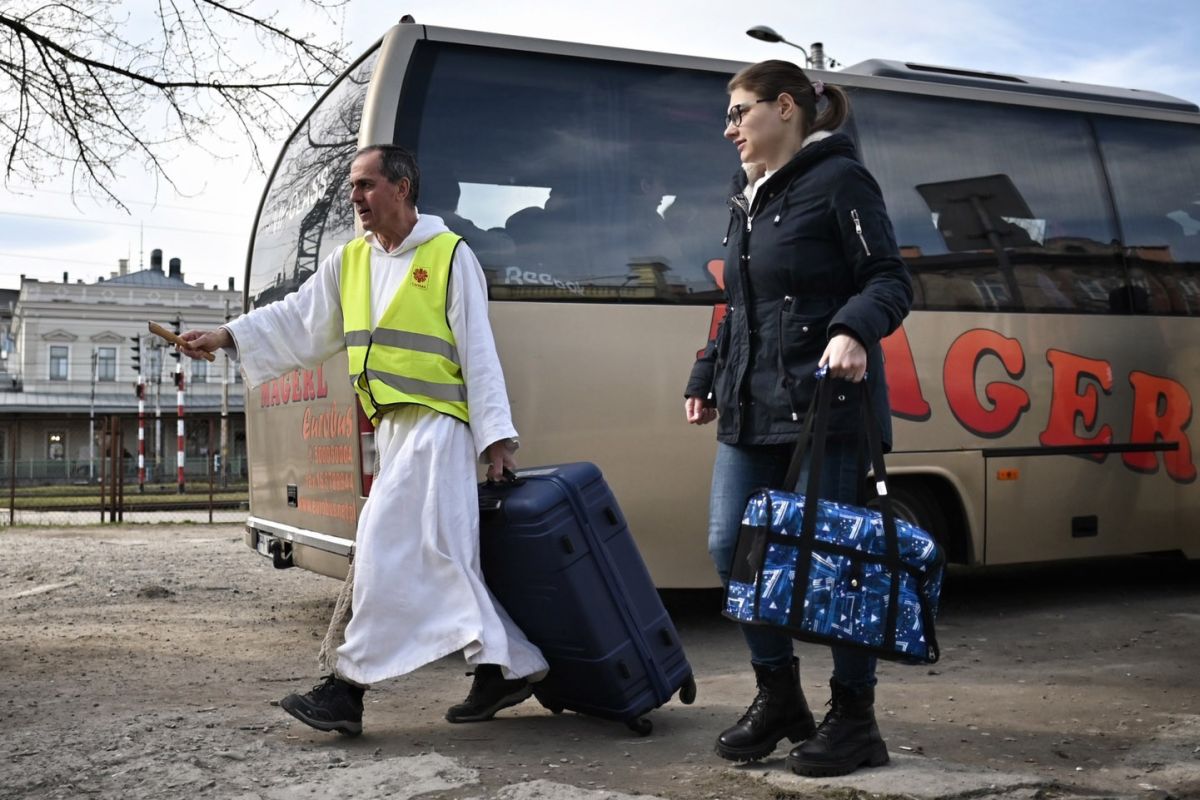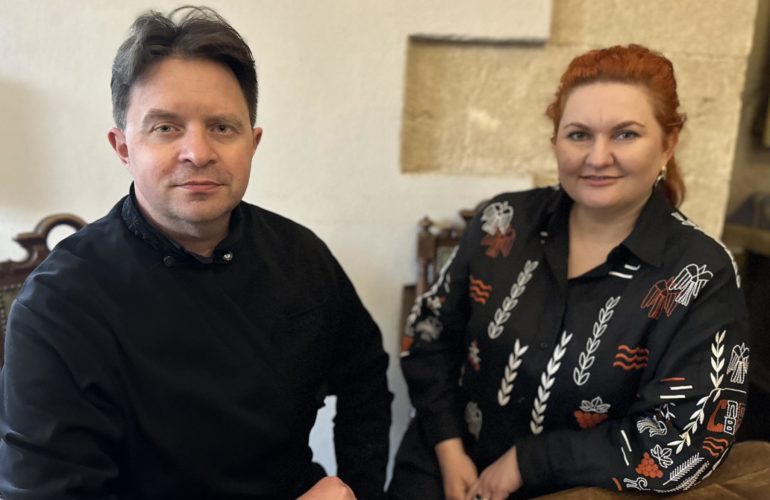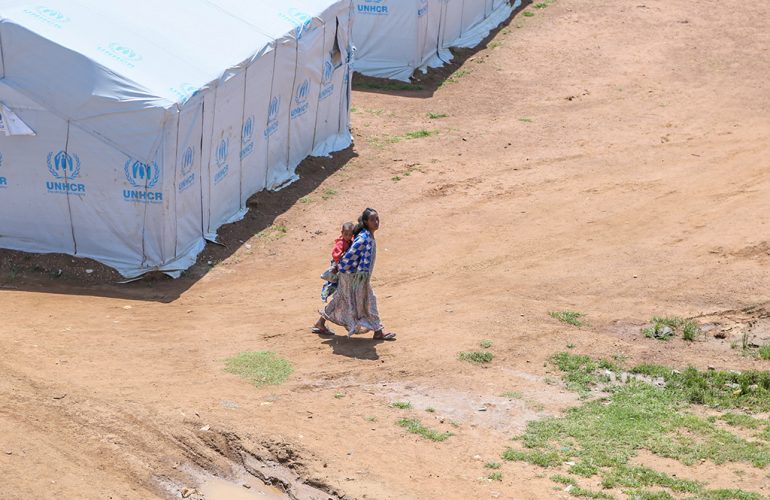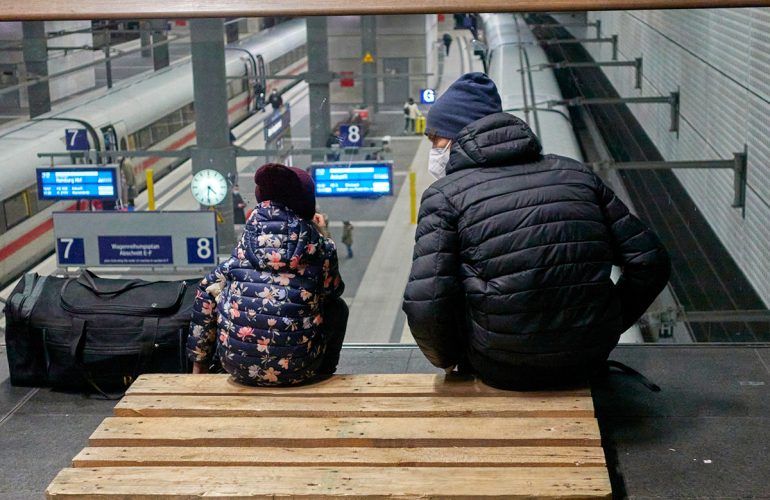ICMC Convening Efforts To Coordinate Church Responses to the War in Ukraine
ICMC and other Catholic-inspired organizations have established the Catholic Response for Ukraine (CR4U) Working Group. The aim of the group is to share information and experience and to resolve unmet needs related to the Catholic Church-inspired response to the humanitarian crisis in Ukraine and neighboring countries.

By Rachel Westerby (*)
Since the Russian invasion of Ukraine on 24 February 2022, more than 5.7 million refugees have fled the country, and a further 7.7 million people have become internally displaced. Church organizations and small groups have been at the forefront of the humanitarian response. “The Catholic Church is very much engaged in providing immediate assistance both within Ukraine and in the countries receiving so many refugees,” explains ICMC Secretary General Msgr. Robert Vitillo. “Church organizations are also advocating at international level for humanitarian action and an end to the conflict.”
This humanitarian situation has a broad geographical scope and presents a range of complex challenges. In March 2022, recognizing the need to convene those engaged in this Church response, ICMC joined a number of other major Catholic organizations to found the Catholic Response for Ukraine (CR4U) Working Group.
Alongside ICMC, founding CR4U members are Caritas Internationalis, Caritas Europa, Jesuit Refugee Service (Europe), the Sovereign Order of Malta – Malteser International, the Commission of the Bishops’ Conferences of the European Union (COMECE), and the Council of the Bishops’ Conferences of Europe (CCEE). The group collaborates closely with the Vatican’s Migrants & Refugees Section (M&R) and the Dicastery for Promoting Integral Human Development (DSSUI).
The CR4U strategic plan provides a framework to coordinate existing efforts of Catholic organizations in Ukraine, Poland, Hungary, Slovakia, Moldova, and Romania, identify new actions and plan how the group’s members can realize them.
The plan addresses four categories of people in need:
- People crossing or trying to cross the border.
- People intending to stay in neighboring countries after crossing a border.
- People transiting through receiving countries with the intention to travel onward to other countries.
- People internally displaced within Ukraine.
The plan focuses on five key areas, each of which has a corresponding CR4U Task Force:
- Data collection. Preparing regular and frequent updates for all CR4U members.
- Humanitarian aid. Coordinating services for people of concern and ensuring necessary funds.
- Advocacy. Monitoring the political scenario and fostering dialogue with national governments, the European Union (EU), other European institutions, and international actors.
- Religious assistance. Ensuring the presence of pastoral agents (priests, religious and lay people) to cater to the displaced.
- Communication. Designing and implementing a joint CR4U communication strategy.
ICMC was requested by the other members to serve as Convenor of the Working Group, which has also set up Task Forces to address the above-mentioned five key areas of activity. In addition, ICMC leads the Data Collection Task Force, compiling information from UN agencies and field updates from Working Group members into a weekly CR4U newsletter. ICMC also plays a central role in advocacy for the humanitarian response to Ukraine, presenting the CR4U initiative and priorities at European and international meetings.
“This is the largest situation of refugees and displaced people in Europe since World War II,” says Msgr. Vitillo. “With CR4U, we are trying to make sure the Church response in Ukraine is coordinated and carried out in a collaborative way, ensuring that needs are met, to prevent duplication, and to leave no one behind.”
*Rachel Westerby is an independent writer and researcher on migration, refugees and integration



